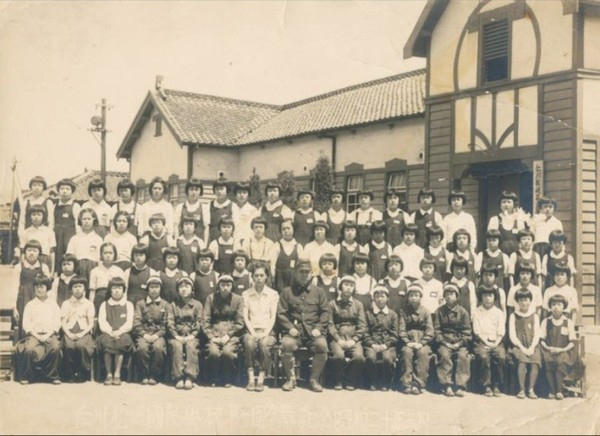Documentary evidence found showing Japan commandeered Korean children during colonization: lawmaker
By Yoon Min-sikPublished : Aug. 13, 2023 - 14:19

A local colonial-era newspaper showing that Japan had commandeered teenage Korean girls for wartime labor during World War II has been discovered, a lawmaker of the main opposition party said Sunday.
Rep. Heo Jong-sik of the Democratic Party of Korea revealed the pages of the July 4, 1944 edition of the now-defunct Maeil Shinbo, which showed that 13 girls who had just graduated from an elementary school in Incheon had been dispatched as members of the wartime labor force. Following imperial Japan's annexation of Korea, Maeil Shinbo was the mouthpiece for the Government-General of Chosen, the chief administrative organization for Korea established by Japan.
The newspaper went on to claim that the children had volunteered for the post, saying that the students “chose to” donate to the military funds raised by their parents in a fundraiser before they were sent off.
Until now, oral testimony has provided the evidence for the claim that children in the Incheon area were forcibly dispatched to undertake wartime labor, but this is the first time documentary evidence supporting the claim has been disclosed to the public.
In one oral statement, in 2018, a then 93-year-old Japanese national by the name of Wakatani Noriko, a former Incheon area teacher, testified that seven of her female students were forced to work at a factory in Japan during World War II.
In another case, Park Im-sun, who was one of the underage laborers for the Japanese military, said that the principals of her elementary school had lured students to take part by saying the government would give them high school diplomas in exchange for two years of work.
The Japanese government maintains that individual underage workers traveled from Korea to Japan to undertake the labor of their own free will. Victims of such wartime labor are currently embroiled in legal dispute with Nachi-Fujikoshi Corp., one of the Japanese companies accused of deceiving 1,000 Korean girls aged 12-18 into volunteering at munitions factories during World War II, promising them that they would earn a lot of money in the future, but ultimately amounting to what they argue was forced labor.
While local scholars say that as many as thousands of people from the Incheon area are estimated to have been forced to work for the imperial Japanese military, so far, research to find documentary evidence supporting the claim has been lacking. Rep. Heo stressed that further investigation is necessary in order to find how severe the issue was.





![[Weekender] How DDP emerged as an icon of Seoul](http://res.heraldm.com/phpwas/restmb_idxmake.php?idx=644&simg=/content/image/2024/04/25/20240425050915_0.jpg&u=)



![[Music in drama] An ode to childhood trauma](http://res.heraldm.com/phpwas/restmb_idxmake.php?idx=644&simg=/content/image/2024/04/25/20240425050929_0.jpg&u=)








![[Herald Interview] Mistakes turn into blessings in street performance, director says](http://res.heraldm.com/phpwas/restmb_idxmake.php?idx=652&simg=/content/image/2024/04/28/20240428050150_0.jpg&u=20240428174656)
